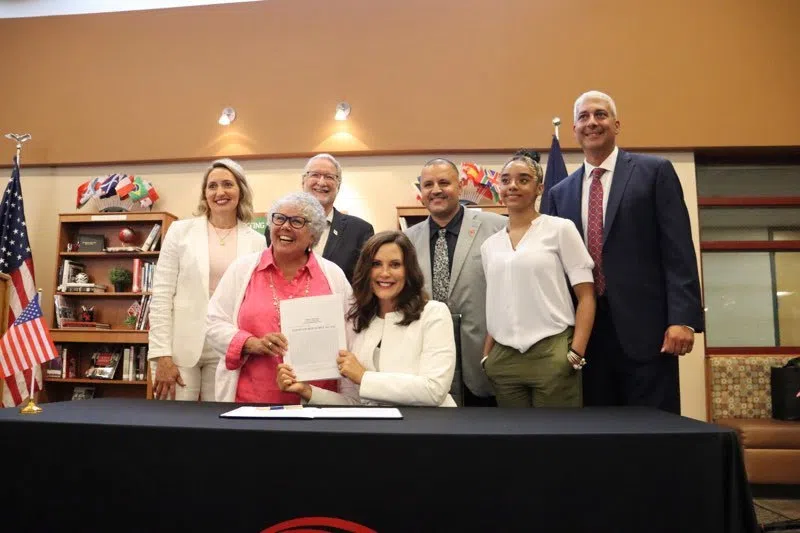LANSING, MI (WKZO AM/FM) – Tuesday, Governor Gretchen Whitmer signed the School Aid budget into law in the presence of students, educators and school administrators at Kentwood Public Schools.
Whitmer says the signing of House Bill 4411 marks a historical moment for the state by reaching the goal of eliminating the funding gap between districts at the minimum and maximum foundation allowances, as set forth by Proposal A of 1994.
The bill finalizes the fiscal year 2022 School Aid budget, which totals $17.1 billion including $85.4 million from the state’s general fund, and provides cost adjustments and supplemental funding for the current 2021 year.
“As we look to the next school year and beyond, we know that every student deserves to be funded at the same level to ensure an equal opportunity to succeed, and I am proud to say that we are able to do that today,” Whitmer said. “The funding provided to our schools today marks the end of a 27-year journey to close the gap between our districts. This equalized funding will improve the quality of educational opportunities for schools and students across the state and set a solid foundation for which to build our future.”
The budget includes $723 million to eliminate the gap between the minimum and maximum foundation allowance by setting both at $8,700 per pupil, an increase of $589 per pupil from the current year minimum amount and an increase of $171 per pupil from the current year target amount.
In addition, intermediate school districts receive a 4% operational funding increase.
The FY 2022 School Aid budget also increases access to early education through the Great Start Readiness Program, which provides preschool to families at or below 250 percent of the federal poverty level.
The new investment includes $121 million in federal funding and $47.5 million from the School Aid Fund, for a total investment of $168.5 million.
The full-day per child allocation is increased from $7,250 to $8,700 and additional funding is provided to expand the program.
The expansion is the first of a three-year phase-in which seeks to ensure access to 22,000 additional income-eligible children by the fourth year.
“This expansion will provide broad access to critical early education programs for thousands of Michigan families,” Whitmer said. “When we provide for comprehensive preschool programing, it not only sets the student up for a lifetime of success, but it has a direct and positive impact on the student’s families and the communities where they live.”

Governor Whitmer in Kentwood on 07/13/21. (Photo courtesy of the Office of Governor Whitmer).






